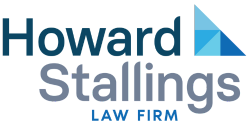Business Interruption Insurance Coverage: The Basics

Property insurance is a critical safeguard for businesses, offering protection against a range of unforeseen events that could otherwise disrupt operations and financial stability. In North Carolina, as in other states, business interruption insurance plays a pivotal role in this safety net, providing coverage for lost income and additional expenses incurred when a business is temporarily unable to operate as usual. Understanding the nuances of property insurance policy coverage for business interruption claims in the Tar Heel State is essential for business owners looking to navigate the complexities of risk management effectively.
The Essence of Business Interruption Insurance
Business interruption insurance, also known as business income insurance, is designed to compensate for income lost during a period of forced closure or reduced operations due to direct physical damage at the insured premises. This damage must result from a covered peril, such as fire, storm, or other events specified in the policy. The coverage extends to fixed expenses, such as rent and utilities, and may also include the extra expenses involved in operating from a temporary location.
Key Coverage Features in North Carolina
1. Covered Perils: In North Carolina, the specifics of covered perils depend on the individual policy. Most policies operate on an “all-risk” basis, covering all perils unless explicitly excluded. Common exclusions include earthquakes, floods, and intentional acts by the policyholder.
2. Waiting Period: Policies typically include a waiting period before coverage begins, often 48 to 72 hours after the direct physical loss has occurred. This means business owners must navigate the initial days of interruption without insurance compensation.
3. Period of Restoration: Coverage is limited to the “period of restoration,” the reasonable time required to repair or replace the damaged property. Insurers in North Carolina expect policyholders to act promptly to mitigate losses and resume operations.
4. Extra Expense Coverage: This aspect of business interruption insurance covers additional costs beyond fixed expenses that allow the business to continue operation during the restoration period, such as the cost of moving to and operating from a temporary location.
5. Civil Authority Coverage: If a government entity denies access to the business premises due to direct physical damage to neighboring properties by a covered peril, civil authority coverage can provide limited compensation for lost income and extra expenses.
Navigating Claims in North Carolina
Filing a business interruption claim in North Carolina requires meticulous documentation and a clear understanding of policy terms. Business owners should:
• Maintain accurate records: Keep detailed financial records to demonstrate the income loss and additional expenses incurred due to the interruption.
• Understand policy limits and deductibles: Policies include limits on the amount payable and deductibles that affect the claim payout.
• Act promptly: Notify the insurance provider immediately after a loss, and adhere to policy deadlines for filing claims and submitting supporting documentation.
Legal and Regulatory Considerations
North Carolina’s regulatory environment underscores the importance of clear communication between insurers and policyholders, especially regarding the scope of coverage and claim procedures. Insurers are required to handle claims in good faith, providing timely responses and fair assessments.
Conclusion
In the complex landscape of business operations, property insurance with business interruption coverage is a cornerstone of risk management in North Carolina. Business owners should proactively engage with their insurance providers to tailor coverage to their specific needs, ensuring a swift and effective response when unexpected disruptions occur. Understanding the intricacies of policy coverage and the claims process is crucial for leveraging this essential protection to its fullest potential.





